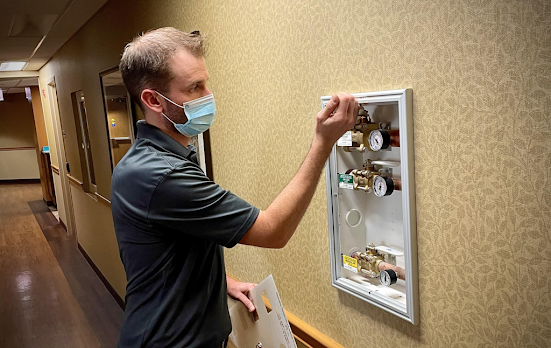ASSE 6030: The Benefits and Challenges of Medical Gas Systems Verification
In the complex landscape of healthcare, the reliable delivery of medical gasses is paramount. Ensuring the safety and efficiency of medical gas systems is a critical aspect of healthcare facility management. ASSE 6030, a standard developed by the American Society of Sanitary Engineering, addresses this need by outlining guidelines for the verification of medical gas systems. This blog explores the benefits and challenges associated with ASSE 6030 compliance.
Patient Safety: The foremost benefit of ASSE 6030 compliance is enhanced patient safety. Medical gas systems must operate flawlessly to support various life-saving procedures and therapies. Verification ensures that the systems meet stringent safety standards, minimizing the risk of gas leaks, contamination, or other potential hazards.Regulatory Compliance: Healthcare facilities must adhere to strict regulatory standards, and ASSE 6030 provides a framework for compliance with industry regulations. Meeting these standards not only ensures the safety of patients but also protects healthcare providers from legal and regulatory repercussions.
Equipment Reliability: Verification processes outlined in ASSE 6030 contribute to the overall reliability of medical gas equipment. Regular checks and inspections help identify and address potential issues before they escalate, reducing downtime and ensuring that healthcare providers can rely on these systems in critical moments.
Cost Efficiency: While the initial investment in ASSE 6030 compliance may seem significant, the long-term benefits translate into cost efficiency. Preventing system failures and addressing issues proactively can significantly reduce maintenance and repair costs over time, making it a sound financial decision for healthcare facilities.
Challenges:
Implementation Costs: The installation and regular verification of medical gas systems in accordance with ASSE 6030 can incur upfront costs. However, it's important to view these expenses as investments in patient safety and overall operational efficiency.
Staff Training: Ensuring that personnel are adequately trained to conduct ASSE 6030 verification processes can be a challenge. Training programs are essential to equip staff with the necessary skills and knowledge to perform these tasks accurately.
Conclusion:
ASSE 6030 plays a crucial role in maintaining the integrity and reliability of medical gas systems in healthcare facilities. While there are challenges associated with implementation and training, the benefits, including enhanced patient safety, regulatory compliance, and long-term cost efficiency, outweigh the initial hurdles. Investing in ASSE 6030 compliance is a proactive step towards creating a secure and efficient healthcare environment.

.jpg)

"Kudos to the author for a well-written and informative post on gas plumber services. I learned a lot from reading this!" At Leakless Plumbing, we take pride in being your premier Gas Plumber Ipswich Specialist.
ReplyDelete